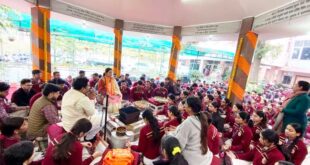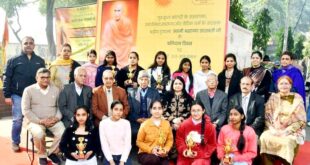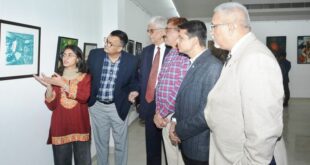Expresses Hope that Project will be dedicated to the Nation very soon
Amritsar, October 21 (Punjab Post Bureau) – Punjab Chief Minister Bhagwant Singh Mann on Thursday envisioned  that Delhi-Katra Expressway will be a harbinger of a new era of unprecedented development and prosperity in the state.
that Delhi-Katra Expressway will be a harbinger of a new era of unprecedented development and prosperity in the state.
The Chief Minister, who accompanied Union Minister Nitin Gadkari to review the work of this prestigious project, said that the work on this ambitious project will be completed very soon and it will be dedicated to people thereafter. He said that the state government has already extended fulsome support and cooperation to the National Highways Authority of India (NHAI) for the completion of the project. Bhagwant Singh Mann said that this project will give major fillip to the economic activity in the region besides opening new vistas of employment for the youth.
The Chief Minister expressed hope that the project will give much needed boost to the trade and commerce in the state thereby emerging Punjab as the frontrunner state in the country. He said that with the intervention of the Union Minister the work on this project will be further expedited thereby giving impetus to the economy of the state. Bhagwant Singh Mann also said that this highway will facilitate the pilgrims going to pay obeisance at Mata Vaishno Devi shrine apart from giving boost to economic activity in the region.
The Chief Minister said that the state government is committed for the holistic development of the state for which more such projects will be brought in state. He said that this is an ambitious project, which once completed, will save time, money and energy of commuters travelling from Delhi to Punjab and Jammu-Kashmir especially those desirous of paying obeisance at Mata Vaishno Devi shrine. Bhagwant Singh Mann said that the 254 kilometer long highway will be constructed at a cost Rs 11510 crore and will pass through nine districts of the state viz. Jalandhar, Sangrur, Malerkotla, Patiala, Kapurthala, Ludhiana, Amritsar, Tarn Taran and Gurdaspur.
 Punjab Post Daily Online Newspaper & Print Media
Punjab Post Daily Online Newspaper & Print Media





